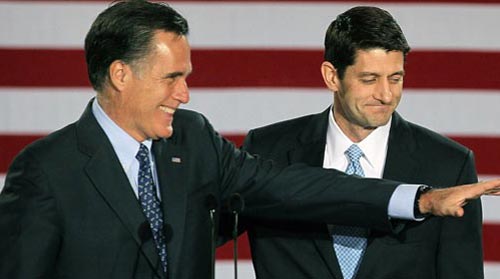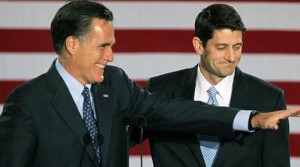In Arizona, Latino Mormons at a Crossroads

 By Valeria Fernandez, New America Media
By Valeria Fernandez, New America Media
PHOENIX, Az. — José Hernández hasn’t made up his mind about who he’s going to vote for in the upcoming election.
“I like things about both, Romney and Obama,” said Hernández, 29, who works as an electrician in Mesa, Arizona. He says he likes that Republican Mitt Romney speaks about creating employment, and that President Barack Obama signed an executive order to halt deportations of youth who have grown up in the country.
Hernandez, who was born in the United States, is part of a growing Hispanic population of voters, many of whom tend to vote Democrat. He is also a member of the Mormon Church, a fact that may lead some to expect a vote for Romney.
 “Being Hispanic, there’s always that fear of being pulled over – not to get caught, but having to have your passport with you at all times,” he explained. That fear is driven in part by a larger Republican-led effort in Arizona to crack down on undocumented immigrants, with laws like SB 1070 that require police to verify the immigration status of anyone they suspect is in the country illegally.
“Being Hispanic, there’s always that fear of being pulled over – not to get caught, but having to have your passport with you at all times,” he explained. That fear is driven in part by a larger Republican-led effort in Arizona to crack down on undocumented immigrants, with laws like SB 1070 that require police to verify the immigration status of anyone they suspect is in the country illegally.
Such measures have helped to alienate many in the Hispanic community from the Republican Party.
Community groups, meanwhile, are mobilizing voters like Hernández to go to the polls in an effort to oust Maricopa County Sheriff Joe Arpaio, who proclaimed himself “America’s toughest sheriff” for his office’s vigorous enforcement of the state’s anti-immigrant policies. Arpaio currently faces a set of lawsuits alleging racial profiling of Latinos.
There are close to 400,000 registered Latino voters in the state, up 23 percent from four years ago, according to the National Association of Latino Elected and Appointed Officials (NALEO). There are a similar number of Mormons living in Arizona, though the community has a longer and more established history of voter turnout.
And this year, observers say, Republicans are counting on their vote. That is certainly the case in a hotly contested U.S. Senate race, with Democrat Richard Carmona challenging Republican Congressman Jeff Flake, who is a member of the Mormon Church.
Carmona, a former U.S. Senator, could become Arizona’s first Latino representative. He has taken an open stance in support of the Dream Act, which offers a path to citizenship for certain undocumented students, and comprehensive immigration reform. Flake, known nationally for sponsoring a bill in support of immigration reform, has since moved closer to the right – like fellow Republican
Senator John McCain – in advocating for tighter border security.
Political journalist Terry Greene Sterling says there’s an interesting dynamic at play this year for Mormon voters. Their church stance on comprehensive and humanitarian immigration reform contrasts with Romney’s support for self-deportation of undocumented immigrants.
“So it’s going to be tricky,” she says, “to see whether Mormons go with their thoughts about immigration and vote for Carmona, who is for immigration reform, or whether Mormons will indeed vote for Flake and Romney because they are Mormons.”
For Pablo Felix, the answer is easy.
“My biggest thing right now as a voter is the economy and the economic stability of this country, the ability to move forward,” said the 42-year-old Mormon. “I’m a sales person and I see that a lot of entrepreneurial opportunities have been cut down during these past few years.”
Still, he says he also recognizes the significance of having a Mormon elected to the White House.
“There’s an examination of political consciousness going on in the Mormon community right now,” said Greene Sterling. “The Mormon Church has a long history – like Latinos in Arizona — of persecution, and so it means something to be a Mormon and see a candidate of your faith ascending into a presidential election. It means acceptance, it means an end of discrimination to them.”
But not all political decisions fall on party lines for Felix, who says he supports some form of immigration reform and will vote for Democratic candidate Paul Penzone in the sheriff’s race.
Arizona State University Political science professor Rodolfo Espino says that while Latinos have increasingly shunned Romney’s party, the Mormon Church has long been working to embrace a growing Hispanic membership.
“The Mormon Church is almost a political party unto itself,” says Espino. “They’re recognizing a new growing demographic that they do not want to push away. Latinos are contributing to the growth of the church.”
Officially, the Mormon Church has shied away from taking a particular political stance. It has not endorsed a candidate and, through its spokespeople, has gone to great lengths in emphasizing its political neutrality.
Within the community, however, opinion varies widely.
The recent defeat of SB 1070 architect and former Republican Senator Russell Pearce, a Mormon in a highly conservative Mormon District, suggests an internal shift taking place among Mormon voters, specifically on the issue of immigration. Pearce faced a recall last year and was defeated by Republican Jerry Lewis, a former bishop in the Mormon Church.
Tyler Montague, a businessman in Mesa who recruited Lewis to run against Pearce, says Mormons are far from being a homogenous voting bloc. “Because we have undocumented people in our churches and in our schools, and once you get to know them they’re like anyone else, you don’t want to see them treated harshly.”
Montague said things started to change among Mesa residents and local members of the Mormon Church once they became aware of the economic and social damage caused by the passage of SB 1070, which prompted thousands to flee the state.
“I think people have moved on this issue,” he says. “Churches and businesses have come out and said, ‘Listen we don’t support Russell Pearce’s approach,’ … businesses have said ‘hey we need workers.’”
Montague says he will vote for Romney, though he doesn’t like the way the former governor has spoken about immigration in his campaign. If elected, Montague believes Romney is likely to pass some form of immigration reform, perhaps in pieces.
This article was first published in New America Media.
[Photo by p kleyman/New America Media]
